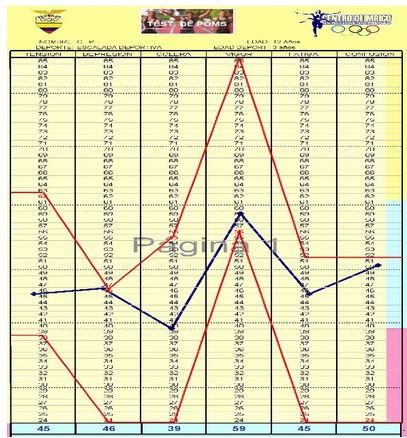Design and execution of a mental training program for sport climbing
Main Article Content
Abstract
This research in sports psychology aims to determine the psychological and emotional factors involved in the sports performance of a female athlete in the sport climbing discipline. It constitutes an exploratory case study. Within the applied methodology, clinical and sports psychological reagents were used, all ethical protocols were followed as it was a minor. As a result of the intervention, no pathologies or problems of psychological approach were found, therefore, psychosport aspects were evaluated, to subsequently establish a microcycle of mental training, based on the needs and characteristics of the competitor.
Downloads
Article Details

This work is licensed under a Creative Commons Attribution-NonCommercial 4.0 International License.
Those authors who have publications with this journal, accept the following terms of the license Attribution-NonCommercial 4.0 International (CC BY-NC 4.0):
You are free to:
Share — copy and redistribute the material in any medium or format
Adapt — remix, transform, and build upon the material
The licensor cannot revoke these freedoms as long as you follow the license terms.
Under the following terms:
Attribution — You must give appropriate credit, provide a link to the license, and indicate if changes were made. You may do so in any reasonable manner, but not in any way that suggests the licensor endorses you or your use.
NonCommercial — You may not use the material for commercial purposes.
No additional restrictions — You may not apply legal terms or technological measures that legally restrict others from doing anything the license permits.
Notices:
You do not have to comply with the license for elements of the material in the public domain or where your use is permitted by an applicable exception or limitation.
No warranties are given. The license may not give you all of the permissions necessary for your intended use. For example, other rights such as publicity, privacy, or moral rights may limit how you use the material.
References
Epelde-Merino, M. J. (2021). La actividad de la escalada como herramienta educativa: un estudio de caso con alumnado de primaria. [Tesis de Doctorado en Didáctica de las Lenguas, Artes y Educación Física, Universidad Complutense de Madrid]. Repositorio UCM. https://eprints.ucm.es/id/eprint/64634/1/T42190.pdf
Ferrero, A., De Andrea, N.& Lucero, F. (2022). Una revisión de la contribución de la ética en la investigación con seres humanos. Algunos aportes al ámbito de la psicología.Revista Liminales. Escritos Sobre Psicología y Sociedad,11(21), 53-83. https://doi.org/10.54255/lim.vol11.num21.654
Marcen-Cinca, N. (2020). Factores perceptivos en escalada deportiva.[Tesis de Doctorado en Ciencias de la Salud, Universidad San Jorge - Zaragoza]. Repositorio (USJ). https://repositorio.usj.es/bitstream/123456789/440/1/Tesis%20Doctoral_Noel%20Marcen_con%20anexos.pdf
Tomé-Lourido, D. (2018). Evaluación de habilidades psicológicas en deportistas, y su relación con la ansiedad y el procesamiento atencional. [Tesis de Doctorado en Proceso Psicológicos y Comportamiento Social - Universidad Santiago de Compostela]. Repositorio (USC).https://minerva.usc.es/xmlui/handle/10347/18134
Yaman, H. (2020). Ciencias del deporte, basadas en la evidencia. Revista PODIUM, 15(1) ,142-152. http://scielo.sld.cu/pdf/rpp/v15n1/1996-2452-rpp-15-01-142.pdf

